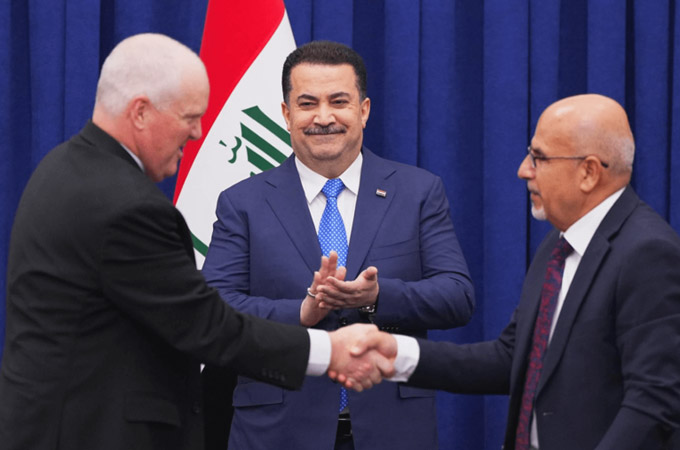Iraq has signed a landmark agreement with Chevron for exploration and development of key oil and gas projects, including the Nassiriya oilfield project in Dhi Qar province

The deal, announced by Prime Minister Mohammed Shia al-Sudani, underscores Iraq’s renewed ability to attract global industry leaders after years of declining foreign investment.
The Nassiriya project encompasses four exploration blocks alongside existing producing fields, with plans for extensive oil, gas, and water injection infrastructure.

Chevron Vice President of Corporate Business Development Frank Mount said: “We are confident that Chevron, with its proven track record and expertise in successfully developing oil and gas projects, has the resources, experience and technology to support Iraq to further develop new energy resources.”
The move builds on the Iraqi government’s broader strategy of re-engaging international oil majors.
Over the past two years, Iraq has secured commitments from companies such as TotalEnergies and bp, with combined investments now surpassing US$50 billion.
Baghdad first authorised negotiations with Chevron in 2021, granting Iraq’s National Oil Company approval to pursue development of the Nassiriya oilfields.
The long-term plan for Dhi Qar province targets an initial output of 600,000 barrels per day (bpd) of crude oil within seven years of the project’s launch.
Prime Minister al-Sudani’s office characterised the agreement as evidence of the government’s “new approach to dealing with major international oil companies, particularly from the US, to foster investment in Iraq”.
The deal also highlights competitive dynamics in Iraq’s energy landscape.
In parallel with the arrival of Western majors, Chinese independent oil firms have been scaling up operations at a rapid pace.
These companies aim to double production to about 500,000 bpd by 2030, benefiting from efficiencies and what industry sources describe as more flexible terms.
“These agreements have been facilitated by improved contract terms that have made Iraq a more appealing destination for oil companies.”
The government’s latest push reflects its determination to raise output capacity and diversify its partnerships, while balancing global competition in one of the world’s most resource-rich petroleum markets.